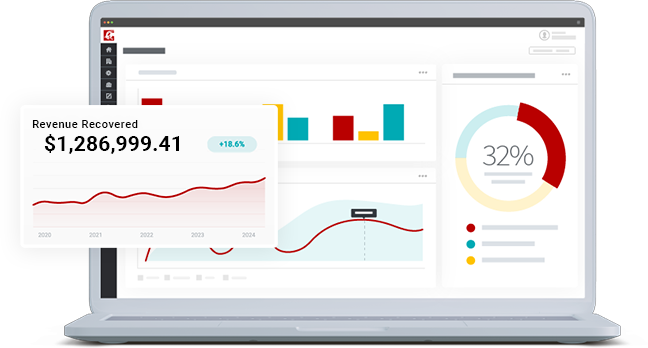What is a Card Issuer? Who are the Leading Issuers in the US Market?
There are a lot of moving parts in the payments landscape. It can be hard to tell one institution from the next. It just so happens that one of the most important — the issuing bank — is also one of the most frequently mislabeled or misunderstood.
For the sake of clarity, I’ve put together a detailed overview of issuing banks, as a concept. We’ll also look at the integral role issuers play in daily payment transactions across the globe.
Recommended reading
- Merchant Identification Numbers | How Do MIDs Work?
- Why is My Bank Account is Under Investigation?
- Issuer Declines: 7 Reasons They Happen & How to Fix Them
- What is an Acquiring Bank? The Acquirer's Role in Payments
- How Debit Payment Processing Works: Costs, Rules, & More
- Interchange-Plus Pricing: How it Works | Tips for Lower Rate
What is an Issuing Bank?
- Issuing Bank
An issuing bank — sometimes called a “card issuer” or simply “issuer” — is a member of a card network that issues credit cards to consumers. They provide banking services to customers, allowing individuals to initiate purchases using payment cards.
[noun]/iSH • o͞o • iNG • baNGk/
In simple terms, an issuing bank is a financial institution that issues credit and debit cards to consumers.
The bank is responsible for assigning credit and debit cards to approved cardholders. That is to say, the issuing bank is a consumer’s credit or debit card issuer and manager.
The credit card issuer acts as a middleman between the consumer and card networks like Visa and Mastercard. The card networks have ultimate control over cards that bear their logo, but these banks do a lot of the legwork. They also take on liability in the event of fraud or misuse.
The name or logo of your issuer will often be printed on the card itself. Be careful not to mistake the card network (Visa, Mastercard, etc.) for the issuer.
What Does an Issuing Bank Do?
Issuing banks are financial institutions that partner with card networks to provide (or “issue”) debit and credit cards to cardholders. The bank authorizes transactions, bears financial responsibility for cardholder purchases, and manages relationships with cardholders.
The issuer is responsible for:
- Activating new cards
- Sending new or replacement cards
- Setting and adjusting credit limits (in the case of credit cards)
- Setting spending and withdrawal parameters (in the case of debit cards)
- Investigating and resolving disputes filed by cardholders
- Blocking charges when necessary
- Suspending noncompliant accounts
Above all, issuers are responsible for safeguarding cardholders’ personal and financial information.
Reputable issuing banks invest heavily in developing and deploying robust account security measures that keep sensitive data out of the hands of bad actors. They may also leverage account monitoring systems, which analyze transaction patterns — including type, location, and amount — to detect anomalies that may be indicative of fraud.
32% of cardholders feel that primary responsibility for fraud protection lies with their bank or credit card company.
How an Issuer Approves a Transaction
How Issuing Banks Differ from Card Networks
Issuers provide payment cards, set credit limits, and make funds available for purchase. In contrast, card networks like Visa or Mastercard are responsible for setting processing rules, determining interchange fees, and facilitating the exchange of information and funds between issuing and acquiring banks.
- Issues and manages credit cards
- Accepts or declines credit card applicants
- Sets user fees, APR, credit limits, and rewards
- Authorizes or credit card transactions
- Facilitates transactions between different banks
- Oversees the infrastructure that facilitates credit card transactions
- Assesses interchange fees
- Sets rules and processes for network members
Some financial institutions, like American Express and Discover, serve as both issuers and card networks. These two companies issue their own cards, but may allow other banks to issue Amex- and Discover-branded cards, and to use the payments infrastructure owned by the respective card brand as well.
This is very uncommon, though. Serving as an issuer and as a credit card network can be incredibly complicated, and requires them to invest in substantial infrastructure. For most, it’s just easier and more efficient to work with a preexisting interbank card network (Visa, Mastercard, etc.).
Card networks fulfill a crucial function of connecting otherwise unconnected banks. Rather than requiring every issuer to transact with another bank on a per-transaction basis, member institutions all use the card network as a universal, impartial middleman. While a bank manages and issues new credit cards, the card network is the party that facilitates transactions between different banks.
Learn more about card networksLookup your Bank Identification Number
Visa and Mastercard are not banks. They’re more like custodians of their respective card networks. They facilitate transactions between banks, and serve as overseers of all the various parties involved in the process.
Merchants: Have additional questions about banking practices? Get help today.
Request a Demo
Who are the Top Issuing Banks in the US Market?
There are thousands of issuing banks operating globally. Some are international institutions, while others are small-scale, local institutions. Some banks even operate entirely online; Chime is one popular example here.
Below, we’ve listed out some of the most recognizable issuers operating in the US, as ranked by number of active accounts. We’ve also outlined the card brand associated with the institution, and the transaction fees assessed to merchants:
Active Accounts
Approximately 100 Million
Affiliated Credit Card Networks
American Express
Credit Card Transaction Fees
- 3.03% + $0.10 per transaction
- Prepaid cards – 1.68% + $0.15 per transaction
- Corporate purchasing cards – 3.01% + $0.10 per transaction
Active Accounts
Approximately 95 Million
Affiliated Credit Card Networks
Mastercard
Credit Card Transaction Fees
- 0-3% domestic and foreign transactions depending on the card
Active Accounts
Approximately 83 Million
Affiliated Credit Card Networks
Mostly Visa, some Mastercard
Credit Card Transaction Fees
- 0-3% domestic and foreign transactions depending on the card
Active Accounts
Approximately 62 Million
Affiliated Credit Card Networks
Mastercard
Credit Card Transaction Fees
- 1 to 4% of original transaction price
Active Accounts
Approximately 60 Million
Affiliated Credit Card Networks
Visa and Mastercard
Credit Card Transaction Fees
- Visa — 1.15% + $0.05 to 3.15%
- Mastercard — 1.5% - 2.6%
Active Accounts
Approximately 57 Million
Affiliated Credit Card Networks
Discover
Credit Card Transaction Fees
- 1.56% to 2.40% + $0.10
Active Accounts
Approximately 23 Million
Affiliated Credit Card Networks
Visa
Credit Card Transaction Fees
- No fees are charged for Direct Pay payments made to Wells Fargo personal bank accounts.
- Direct Pay payments to non-Wells Fargo personal bank accounts cost $0.50 per payment.
- All Direct Pay payments to business bank accounts cost $3 each
Active Accounts
Approximately 37 Million
Affiliated Credit Card Networks
Mastercard
Credit Card Transaction Fees
- 0-3% domestic and foreign transactions depending on the card
Active Accounts
Approximately 16 Million
Affiliated Credit Card Networks
Visa and Mastercard
Credit Card Transaction Fees
- 0-3% domestic and foreign transactions depending on the card
Active Accounts
Approximately 14 Million
Affiliated Credit Card Networks
Visa and Mastercard
Credit Card Transaction Fees
- 0-3% domestic and foreign transactions depending on the card
Why Would a Card Issuer Decline a Transaction?
An expired card, closed account, maxed-out credit limit, or suspected fraud can result in a hard decline, while card verification issues, data entry errors, an unsupported currency, or temporary system errors can result in soft declines.
There’s always the risk that a cardholder could accidentally try to debit more than is available in their account at that moment. They may even end up defaulting on their credit card balance. If that happens, the bank that underwrote the cardholder’s account will be on the hook for the money, and it’s up to them to try and recoup the costs from the customer.
Furthermore, banks have certain legal obligations to their customers regarding fraud and other abuse. If an issuer fails to conduct due diligence, and a cardholder becomes a victim of fraud as a result, the bank would be held liable for the losses.
Why Don’t Banks Just Approve Every Transaction?
In the event of fraud or abuse, banks can file chargebacks to undo the transaction and recoup the cardholder’s money. So, why do they apply so many qualifiers to approve a simple transaction?
It makes sense that, whenever cardholders dispute fraudulent or unfamiliar charges, the bank has the incentive to proceed with a chargeback. They could even file a bank chargeback without the cardholder's knowledge in the event of an authorization error.
Banks don't want to file too many chargebacks, though. If they submit an excessive number of invalid disputes, they may end up in an issuer monitoring program.
All told, banks do a lot of work and accept a lot of risk to issue payment cards. That’s why issuers charge a fee for every card transaction. It’s also why, if a bank determines that a customer lacks the income, credit score, or ability to pay down any funds advanced to them, they may be denied an account.
How Issuers Mitigate Fraud & Protect Cardholders
You might say the payment card industry is on the front lines when it comes to fraud.
Issuers are the institutions responsible for facilitating several forms of consumer payments across the globe. As such, they are required to innovate and implement solutions, analyze and tabulate fraud statistics, and lead merchants and consumers toward the safest and most effective payment trends.
Here is a general overview of the fraud mitigation practices used by issuing banks:
Emerging Trends & Innovations in Issuing Banks
Issuing banks are constantly evolving. Many institutions that issue cards now don’t have physical branches or relationship advisors. Some issuing banks are entirely digital. And, some issuers aren’t even banks at all.
Here are a few of the dominant trends I wanted to spotlight in the payments issuing space:
Need Help?
Does all of this sound a little confusing? Don’t worry: you’re not alone.
Like we said, there are many moving parts to the transaction process. Each player represents a plethora of systems, decisions, and controls. For this reason, the role of the issuing bank is often misunderstood.
This isn’t as much of a concern for cardholders. For merchants, though, complex payment industry rules and processes can be a real nightmare.
Luckily, we can help. Not only do we offer a turnkey solution that handles dispute processes from beginning to end, we also make sure merchants are kept informed of what’s happening along the way.
FAQs
What are examples of issuing banks?
American Express, Wells Fargo, Citibank, Chase, Capital One, and Bank of America are examples of issuing banks.
How do I know my card issuer?
Your issuer is the bank responsible for issuing your credit and debit cards. The bank’s logo should be printed on the card. Keep in mind, however, that this is not necessarily the same entity as the card network, whose logo will also be printed on the card. Visa and Mastercard, for example, are not issuers.
Is MasterCard a card issuer?
No. Mastercard and Visa are card networks, not issuing banks. There are some issuers who operate their own card networks, like American Express and Discover. However, most issuers do not do this.
Why is my card declined by the issuer?
All told, banks do a lot of work and accept a lot of risk to issue payment cards. That’s why issuers charge a fee for every card transaction.Thus, if an issuing bank determines that a customer lacks the income, credit score, or ability to pay down any funds advanced to them, they may be denied by the issuing bank.
What banks are issuing banks?
Issuing banks are financial institutions that provide (or “issue’) credit or debit cards to consumers and businesses. Issuers also set and adjust credit limits, maintain cardholder account information, monitor transactions for fraud risks, and provide additional financial services for cardholders.
What is the role of the issuing bank?
Issuing banks are responsible for providing payment cards to cardholders, which they do in partnership with card networks. They also play a role in the transaction lifecycle by authorizing or declining transactions, monitoring purchases for signs of fraud, and confirming the availability of funds.













